10 Reasons Your Dog Loves to Play With Trash
Dogs have a habit of turning the garbage can into their personal treasure chest. It’s messy, gross, and yet completely natural. While humans see trash as, well, trash, dogs interpret it as an opportunity. Their curiosity and instincts explain a lot. Here’s why your pup keeps diving nose-first into yesterday’s leftovers.
That Nose Knows Everything
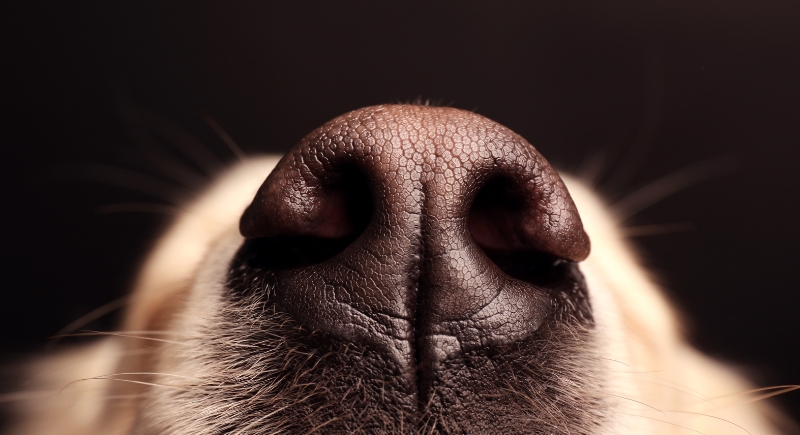
Credit: pixelshot
A dog’s nose holds about 300 million scent receptors, which is 50 times more than a human’s. So while a garbage bin smells like rot to people, and to dogs, it’s a full menu of leftover aromas. They smell that smear of chicken grease or the apple core.
It’s All About the Hunt
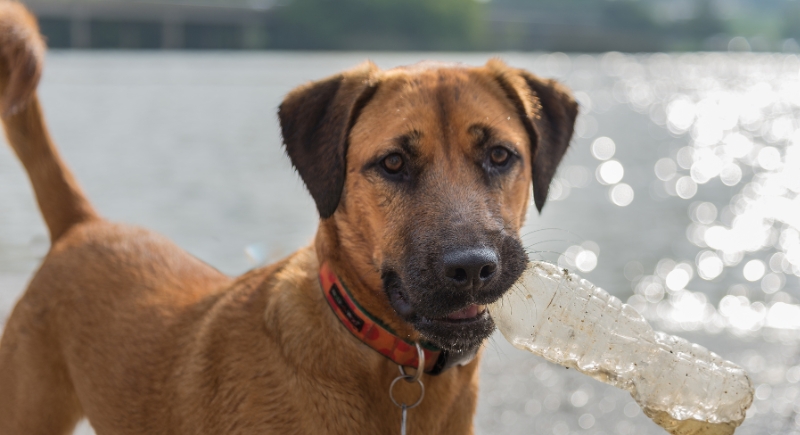
Credit: Getty Images
Even well-fed dogs still enjoy the act of foraging. This behavior goes back thousands of years, when early canines scavenged scraps near human settlements. Digging through the trash satisfies that ancient urge to search, sniff, and “discover” something tasty or chewable.
The Thrill of the Rip and Tear
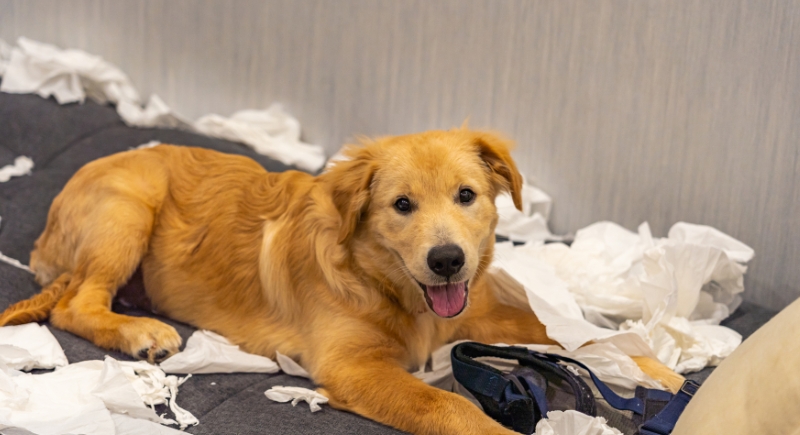
Credit: Canva
Shredding tissues, tearing up napkins, and tossing food wrappers is instinct. Dogs often mimic the actions of pulling apart prey when they attack a bag of garbage. Even non-food items can resemble what a wild dog might have encountered.
Leftovers Taste Better Than Kibble

Credit: Canva
Dogs don’t care if something’s expired. That greasy burger wrapper or soggy pizza slice still smells like food, even if it’s been sitting in the trash for hours. Trash often contains high-fat, high-protein scraps that dogs find far more appealing than dry kibble.
Garbage Cans Are Just Too Convenient
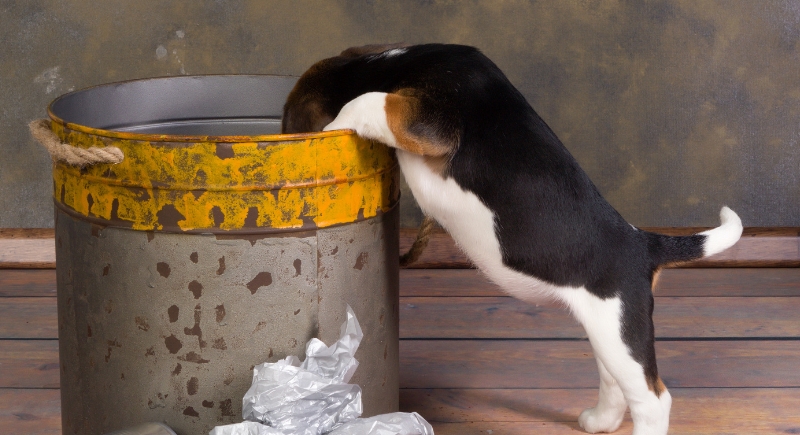
Credit: Canva
You’ve probably noticed your trash can is exactly at nose level. Combine that with a flimsy lid or a quick moment alone, and it’s open season. Dogs are simply taking the easiest opportunity around. One successful raid, and they’re likely to keep checking back.
Dogs Learn by Association
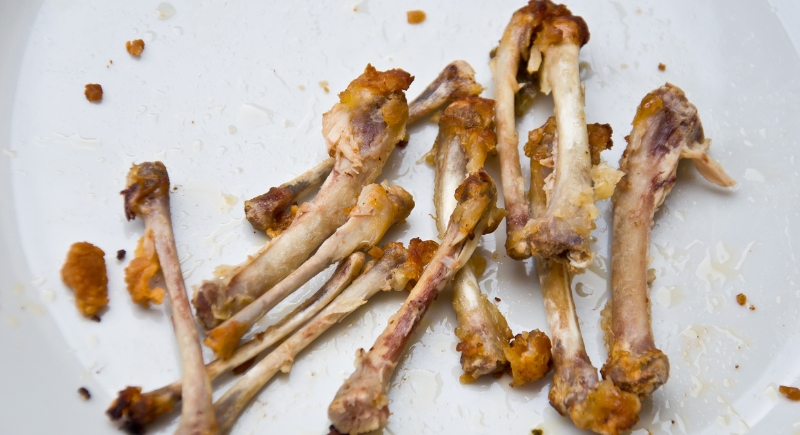
Credit: Getty Images
If a dog once found a chicken bone in the bin, they’ll remember it. They quickly associate rummaging with reward. The brain remembers the excitement of discovery, which makes it more likely that they’ll try again. It becomes a learned behavior, not just a random act of curiosity.
Boredom Makes Trash More Interesting
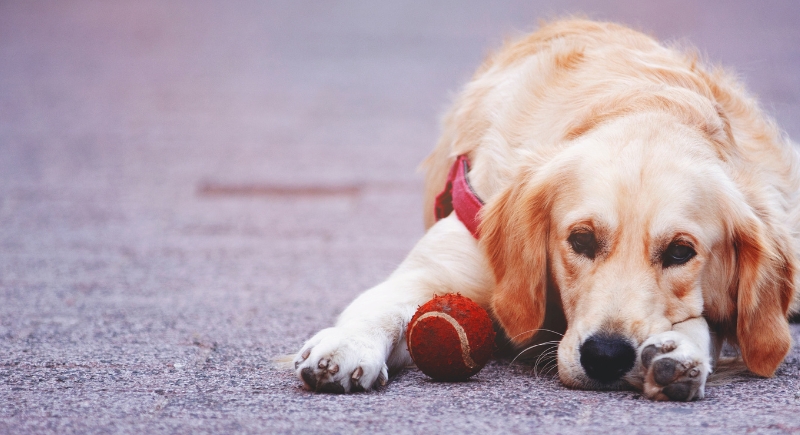
Credit: Getty Images
A bored dog will look for ways to stay busy, and an open trash can provides instant entertainment. Digging, sniffing, and pulling things apart help burn off mental and physical energy.
Trash Feels Like a Puzzle
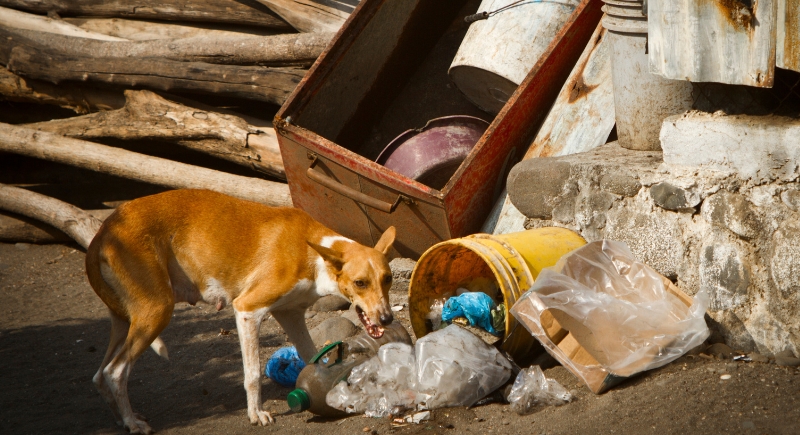
Credit: Getty Images
Many items in the garbage come wrapped, boxed, or tied. To a dog, that’s an interactive toy. Opening a takeout container or digging through a tied bag offers the same mental stimulation as puzzle toys. They enjoy figuring out how to get to what’s inside.
Used Napkins Smell Like You
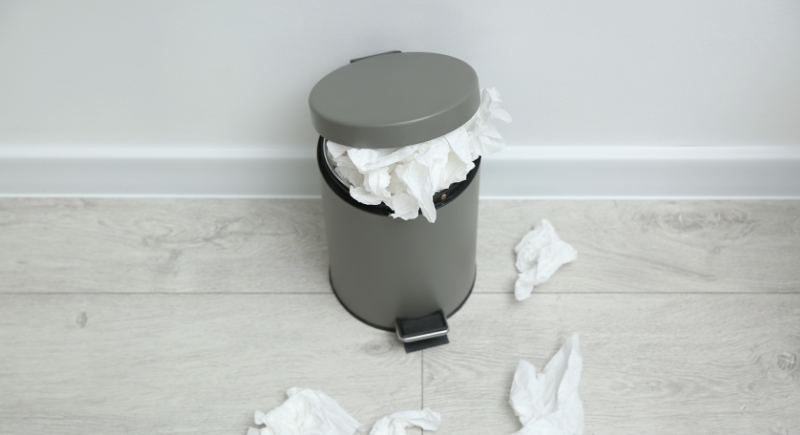
Credit: Africa Images
If it touched your face, your hands, or your food, it smells like you, and that’s all your dog needs to know. Bathroom trash is even more tempting. Some dogs also go for Q-tips or feminine products because they carry strong, personal scents.
Paper and Plastic Make Great Sound Effects
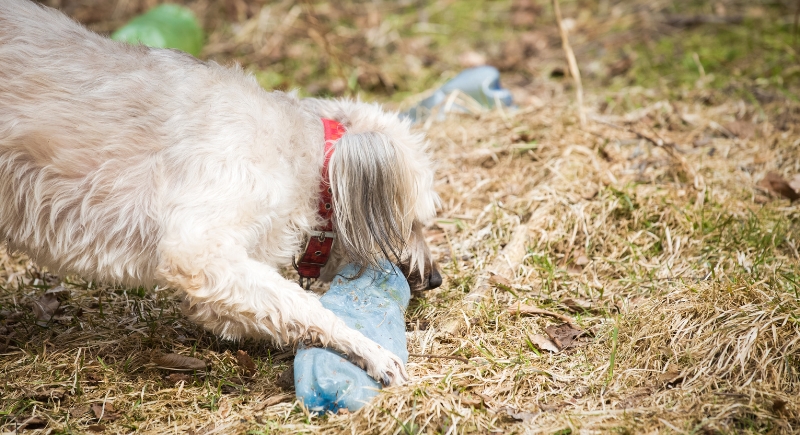
Credit: Getty Images
Crumpling paper, crackling wrappers, and the hollow clink of a can aren’t just noises to ignore. To dogs, those sounds trigger curiosity and excitement. The sensory feedback from tearing into packaging is part of the appeal.
Dogs Use Trash to Mark Territory Indoors
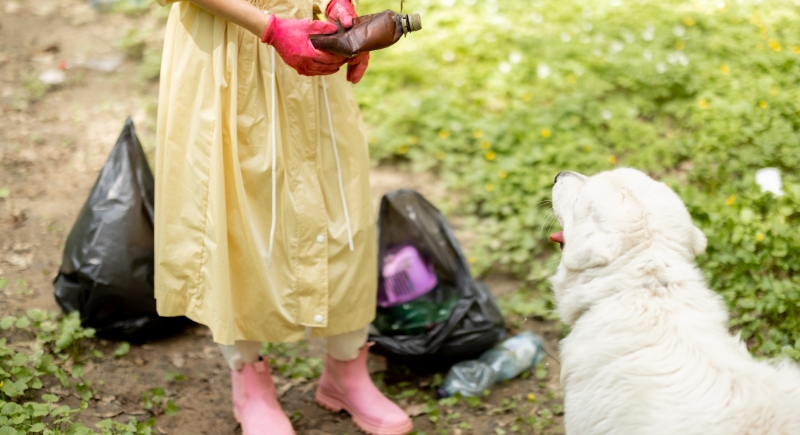
Credit: Canva
Though more common with excess, some dogs use displaced objects, including trash, as a way to “claim” an area. Dragging items out and spreading them around may feel like spreading their presence. It’s more common in multi-dog households or when new animals or people are introduced.
They Don’t Understand Consequences
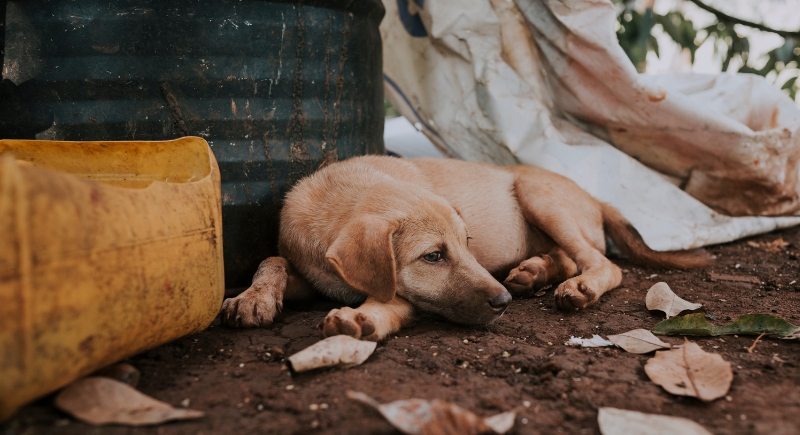
Credit: pexels
Cause and effect aren’t always clear to dogs. They may remember getting into the trash, but not connect it with the upset stomach that followed. This disconnect is why trash digging continues, even after multiple messes or vet visits.
Routines Make Dogs Predict Human Schedules
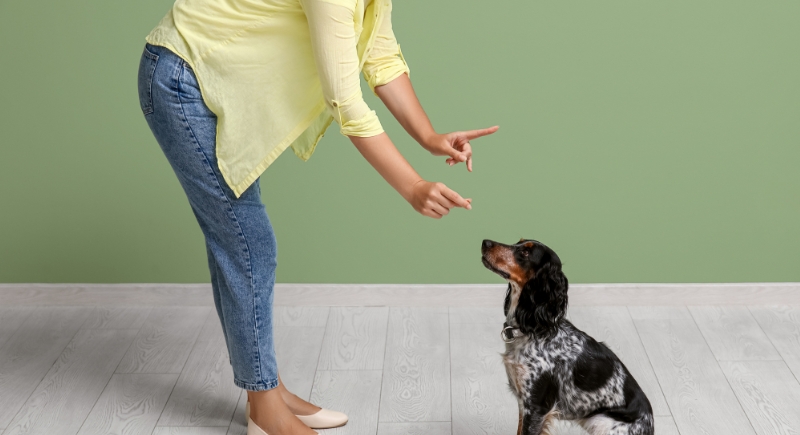
Credit: pixelshot
Dogs are smart about timing. If they’ve figured out when you leave for work or head to bed, that’s their window. Trash raids often happen at specific times, not by accident but because your dog has observed and remembered your habits.
Some Breeds Are More Prone to Scavenging
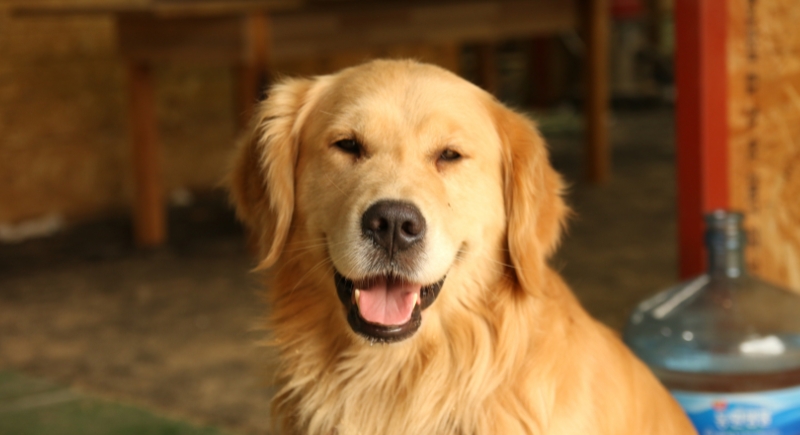
Credit: pixabay
Terriers, retrievers, hounds—certain breeds have stronger scavenging instincts than others. Dogs bred to sniff out game or retrieve objects often apply those same skills to household messes. A beagle might be more tempted by food scraps, while a Labrador could be drawn to the thrill of chewing packaging.
They Don’t Know It’s “Gross”
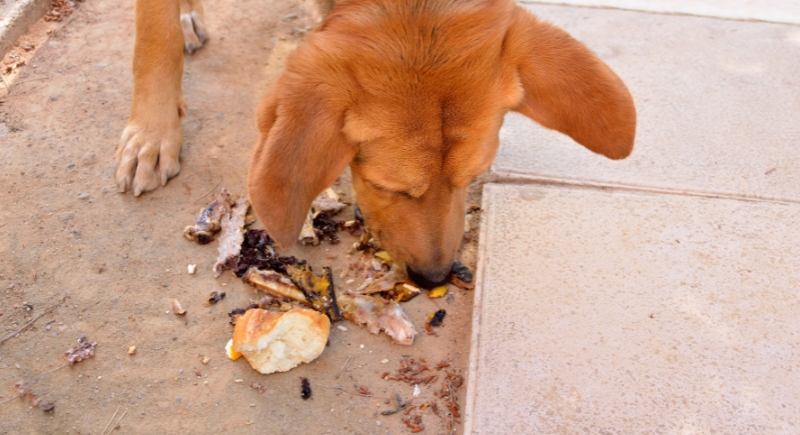
Credit: Getty Images
Dogs don’t share the human idea of what’s clean or dirty. A used tissue, a moldy sandwich, or a bit of spoiled milk doesn’t register as “disgusting” to them. Their judgment comes from instincts, not hygiene standards. If it smells strong, it’s worth exploring.